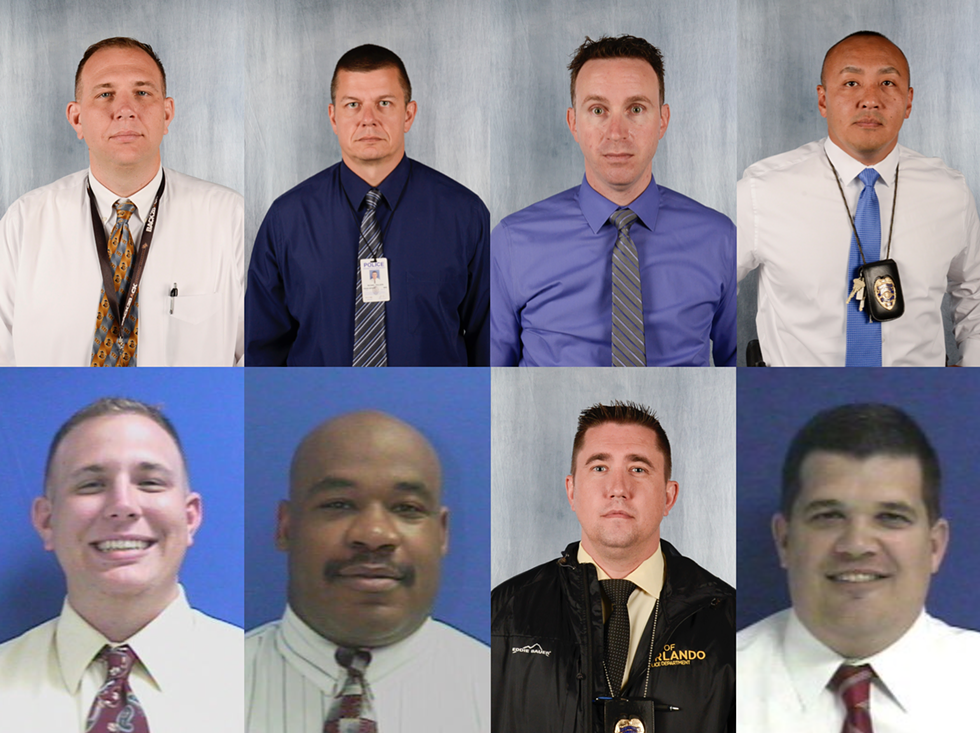
How exactly did Orlando stumble into something as potent as Rekognition?
City officials have only said that Amazon approached them. But based on interviews and available public records, the partnership has something to do with the municipality's desire to become a so-called smart city.
Smart cities purport to be urban areas that invest in technology and intelligent design to create sustainable high-quality housing and jobs. Smart Cities Council, the world's largest smart cities network, promotes three core values: livability, workability and sustainability.
"We want to become the world's most intelligent, interconnected and efficient city," Mayor Buddy Dyer said in 2017 after the Smart Cities Council awarded Orlando its Readiness Challenge Grant, which came with "a year's worth of free mentoring, valuable products and services" and "worldwide publicity," according to the council's site. One of the grant's supporting sponsors: Amazon Web Services.
Since 2010, Akhtarkhavari has pioneered Orlando's transition into a smart city, bringing in technologies like cloud computing to City Hall's internal infrastructure.
"Everything we do is to make our city better," she says. "Everything we do is to make our city smarter, more efficient, more effective."
When Amazon offered in August 2017 to let Orlando test Rekognition for free, Akhtarkhavari saw it as another asset to the smart-city agenda. By December, the city entered into its first six-month pilot program to try out the technology with eight surveillance cameras around the city.
"Everything we do is to make our city better," she says. "Everything we do is to make our city smarter, more efficient, more effective."
tweet this
The program is housed in the police department's IRIS room, a second-floor hub walled with dozens of screens displaying video feeds from the city's 180 or so security cameras, including the eight feeds being used for the program. Amazon consultants visited OPD in January to outfit the IRIS room with Rekognition-compatible computers, according to a contract signed by city officials.
The software works its magic in the cloud, a virtual Amazon server much like Google Drive or Apple's iCloud. Rekognition plugs into the city's streams of surveillance footage to observe and identify a person of interest. Amazon does not store that video, according to Akhtarkhavari.
To make sure the new software works with every brand of security camera in the city, Akhtarkhavari chose three existing cameras in downtown, one camera at an undisclosed Orlando facility and four cameras at OPD headquarters. (In an interview, Orlando Police Chief John Mina revealed that the undisclosed facility is one of the city's community recreation centers.)
At the onset of the testing period, IT staff uploaded photos of seven police officers who volunteered to take part in the program. Once the eight cameras came online in February, the officers walked in view of each connected camera to test its accuracy in finding a match. The city stresses that OPD is not currently using the technology in an investigative capacity or using images of the public for testing. City officials say members of the public may be scanned as Rekognition works to find the volunteer officers, but that biometric information is not stored.
"When there is a hit for an image, when there is a success, the plan – which we have not seen it working yet – we would receive an email that says, 'From camera A at minute whatever, you have a match with image B,'" Akhtarkhavari says. "This is how we are expecting the proof of concept to work."
Orlando never got to that point during the pilot program, as some of the city's surveillance cameras weren't streaming footage efficiently into Amazon's cloud.
"One of the three types of cameras – a very old one that should be replaced and is in the process of being [replaced] – is just not working," Akhtarkhavari says. "The stream keeps stopping."
The program went largely unnoticed until May 22, when the American Civil Liberties Union published records showing Amazon was marketing its Rekognition technology to law enforcement agencies and already had two clients: the city of Orlando and the Washington County Sheriff's Office in Oregon. Mina initially insisted that none of the security cameras being used in the program were outside the department's headquarters. A day later, he backtracked.
Details on how the technology works have been shielded by a nondisclosure agreement Orlando signed with Amazon last year. The contract says the city can't release information about Rekognition without written consent and approval from Amazon.




















